A Royal Affair
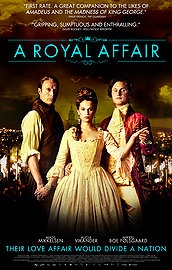
Unless you’re some sort of terrifying expert on aristocratic Nordic shagging, chances are you don’t know a lot about the tumultuous love triangle between King Christian VII of Denmark, his German/English queen Caroline Mathilde and Christian’s radical personal doctor Johann Struensee. That’s fine – we don’t expect the Danes know a lot about Anne of Cleves or Guy Fawkes – but it’d be a shame if you missed the opportunity to find out about this genuinely fascinating snippet of European history. Especially since it’s been packaged in a completely brilliant film. Isn’t Scandinavia fab?
The year is 1766, and fifteen-year-old princess Caroline Mathilde (Vikander) is preparing to leave England for her new life as Queen of Denmark and Norway. She’s never met her new husband Christian – they’ve actually already been married, although she wasn’t there for the ceremony – but Caroline couldn’t be more excited to spend her life with a man who she’s been told is modern, enlightened and passionate about art and literature. Suffice to say that the real Christian (Følsgaard), a cruel and infantile man who is palpably mentally ill, comes as quite a shock. Caroline fulfils her duty as a wife and Queen, producing a son for Christian (who doesn’t seem much happier about having to visit her chambers than she is) and then leaves her husband to his games and his whores.
That might have been the end of the story, had Christian not crossed paths with a very singular doctor on one of his trips round Europe. Johann Struensee (Mikkelsen), a gifted physician who writes dangerously liberal texts under a pseudonym, is introduced to the king by a disenfranchised noble who hopes to use Struensee as a stepping stone back into court favour – but nobody anticipates the extent to which the King will take to his dour new German doctor. Struensee is installed at court and determines to use his new position for the good of Denmark, still a bastion of theocratic backwardness in the midst of the Enlightenment; the only thing he didn’t plan for is the lonely and beautiful Queen, whose philosophy appeals to him just as much as her crown jewels. Caroline and Struensee begin a clandestine affair, all the while manipulating the oblivious Christian into proposing ever more radical laws. But how long will the Copenhagen old guard endure them playing the system?

Alright, so the “tumultuous love triangle” I mentioned earlier might not translate that well onto the page. Totally, totally not the point. A Royal Affair is, like all the best love stories, about the people involved rather than the things that happen to them – the fact that the story surrounding Christian, Caroline and Johann is genuinely absorbing is just a bonus as far as I’m concerned. Writer-director Nikolaj Arcel is on record as saying that he actively resisted the temptation to shoot the film like a period drama, and the distinction shows – there are no indulgent shots in soft focus, no shots full of a plethora of outrageous costumes (well, not many), no huge sets built with the sole intention of making you notice just how marvellous castles are. Unconventional camera angles, brutal cuts and an aggressive, high-tension score serve to up the ante, but a lot of the credit for the enticingly un-dated feel of the film goes to Arcel for his sparse and brilliant script. The subtitles probably help, but such unpretentious dialogue in a film mostly starring 18th-century royals is quite a treat. Oh, did I mention that Arcel also wrote the original Girl With the Dragon Tattoo? YEP.
The best script in the world is no good if all you’ve got is Danny Dyer shitting himself onset, though, and fortunately for everyone involved with A Royal Affair he wasn’t. I doubt he even knows what a Denmark is. Instead, the bulk of the film is carried by the characters standing at the three points of the by now over-mentioned love triangle. Alicia Vikander is charming and, at times, painfully emotional as the neglected, sidelined Queen Caroline, but although she narrates the film and is its nominal star she doesn’t feel like much more than an enabler for her two costars. Mads Mikkelsen is on typically brilliant form as the troubling Struensee, whose excellent intentions but total willingness to manipulate Christian for the greater good make him a morally challenging character – Mikkelsen is compelling without necessarily being likeable, quite a feat when you’re ostensibly playing a romantic hero. The real success story, though, is newcomer Mikkel Boe Følsgaard as the Kong (that’s Danish for King) himself. By turns cruel and childish, imperious and inane, Følsgaard absolutely earns his Silver Bear with an utterly compelling portrayal of a man unable to accept the reality of his own illness.
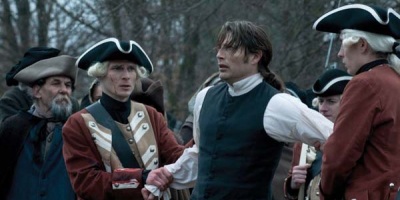
A Royal Affair is exactly the sort of film which needs to be forcibly shown to the sort of dolts who say they “just can’t connect” with period pieces. The (very) occasional indulgent court scene aside, this is as sharp and vivid a film as you’re likely to find and one more thundering endorsement of the increasingly unstoppable juggernaut that is Scandinavian cinema. Brace yourself.

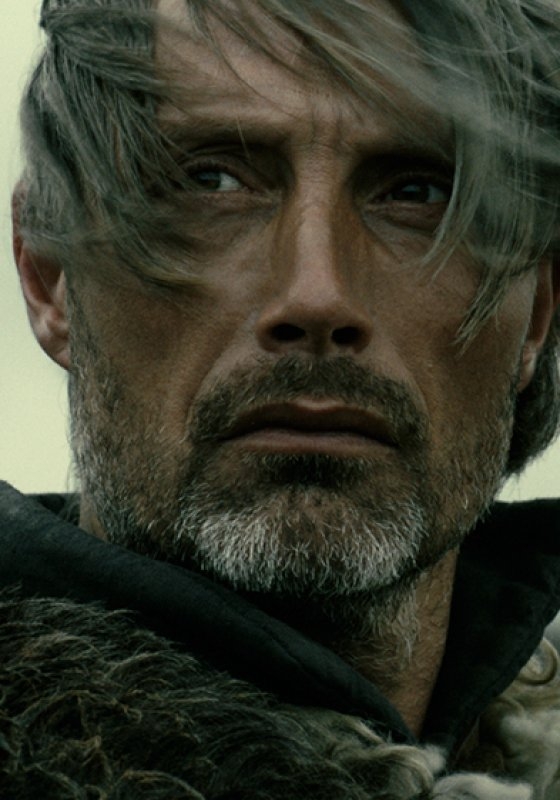
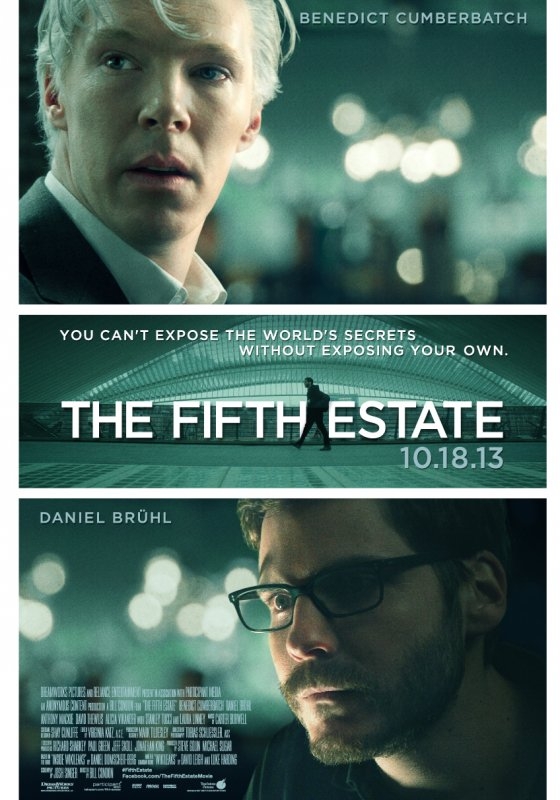

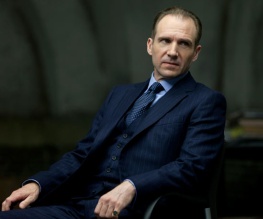
Recent Comments